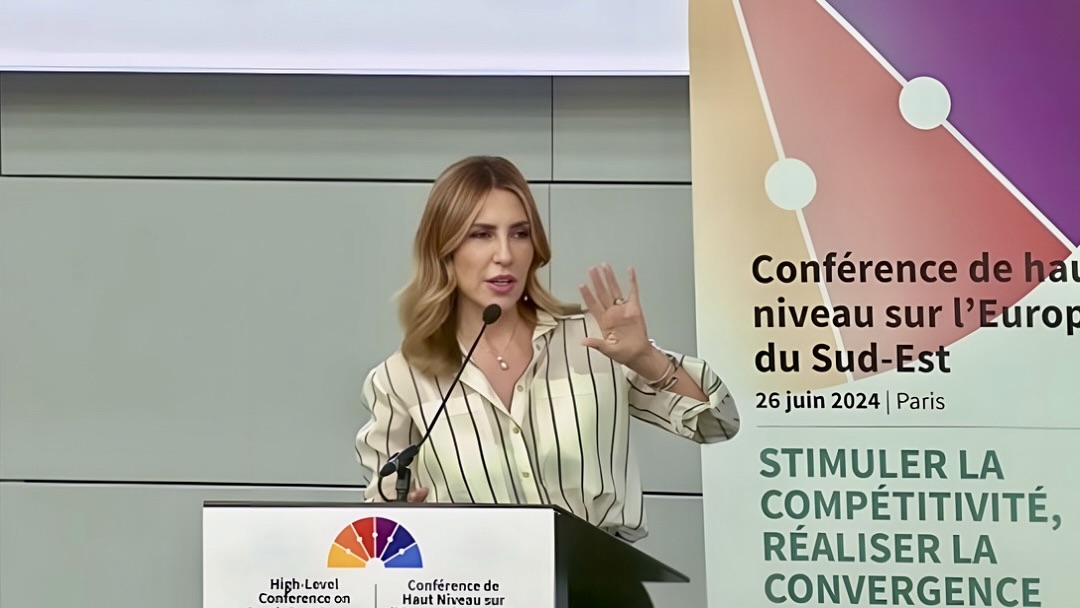Bregu: Convergence scenarios put our region on up to 72 year convergence approximation journey
26 June 2024

RCC Secretary General Majlinda Bregu spoke at the opening panel of OECD High-Level Conference on South East Europe, in Paris on 26 June 2024 (Photo: RCC)
RCC Secretary General Majlinda Bregu at opening panel of OECD High-Level Conference on South East Europe
Paris – The Secretary General of the Regional Cooperation Council (RCC), Majlinda Bregu, outlined the importance of regional initiatives in fast-tracking Western Balkan competitiveness path of economic growth, at OECD’s Driving Competitiveness, Achieving Convergence High-Level Conference on South East Europe held in Paris today.
“Western Balkans is a much different region from the one 10 years ago. Regional cooperation proved itself as a safe vessel in a storm, with 80% of the citizens fully supporting it. But as the region is still riddled with tensions, its full potential is yet to be harnessed. With credibility at stake, full implementation of the made commitments, is a hard must! Persistent stalemates and blockages are no longer affordable. The new phase of the Common Regional Market, a regionally-owned framework, is in preparation. While it may not change the whole situation in the region, it is going to bring the region closer together, fast-tracking the much-needed convergence,” said Bregu.
Alongside Bregu, the opening session gathered high-level speakers including Péter Szijjártó, Minister of Foreign Affairs and Trade of Hungary, Zdenko Lucić, State Secretary for Foreign Trade and Development Cooperation at Ministry of Foreign and European Affairs of Croatia, Mathieu Bousquet, Director at European Commission Directorate General for the Neighbourhood and Enlargement Negotiations (NEAR) and Carlo Monticelli, Governor of the Council of Europe Development Bank.
“Western Balkans lacks trust in the strength of region’s economic and trade links. Yet unpublished Balkan Barometer Business Opinion data reveals two main obstacles of such an impression: labour force shortages and brain drain. But there is an opportunity. Supportive environment can spur annual growth by 2%, attract up to 6.5% more investment, increase the job growth rate by up to 1% per year, and boost SME productivity by 5% to 10%. Encouraging the free movement of labour across Western Balkans brings a potential to add a substantial 1.3% to our GDP by 2025. As the convergence scenarios put our region on a 24 to 72 year convergence approximation journey, not a single percentage of growth prospect can be wasted,” added Bregu.
Ms Bregu emphasised the successes of regional integration through the Common Regional Market as “access gateway” for progressive integration into the EU Single Market and its potential for creating self-sustainable socio-economic convergence.
“As the region tries to look ahead with somewhat shaken hopes, we face a 8% drop in the citizens’ support for EU membership. It is crystal clear that Western Balkans is in a need of bolder and faster integration in EU’s Single Market and fully operationalised accelerated integration, with higher predictability about the next financial perspective to support new dynamism and transformation to attain better living standards and convergence. But ultimately, it’s not just about money and market, it's about values and also about our commitment to the hard work of reform, to fighting corruption and building a common future,” concluded Bregu.



